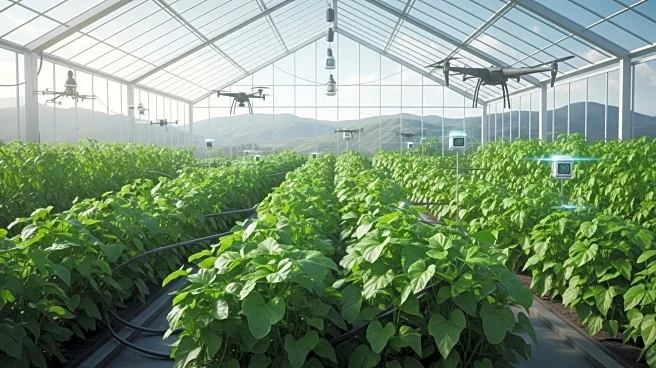What's Happening?
Crop science innovations are becoming crucial as climate volatility intensifies and geopolitical shocks reshape supply chains. The biological inputs market, including biofertilizers, biostimulants, and biopesticides, is projected to grow significantly, reaching $115 billion by the 2040s. These products aim to reduce emissions and enhance crop resilience. Advances in plant genetics, such as CRISPR, are enabling the development of climate-adapted crops. AI and precision agriculture are transforming crop science, with companies like ThinkLabs and LILA advancing predictive modeling and materials formulation.
Why It's Important?
These innovations are vital for global food security, as they offer scalable solutions to meet rising food demand while addressing environmental challenges. Biological inputs and gene-edited crops can improve crop resilience and reduce reliance on chemical inputs, aligning with sustainability goals. AI-driven precision agriculture enhances efficiency and resource management, making it a key component in the future of farming.
What's Next?
Regulatory clarity is improving, with initiatives like the Plant Biostimulant Act of 2025 in the U.S. aiming to streamline oversight. The adoption of AI and precision agriculture tools is expected to accelerate, with companies investing in technologies that enhance crop resilience and productivity. Collaboration between biotech firms and agricultural companies will continue to drive innovation and adoption.
Beyond the Headlines
The convergence of biotech, digital infrastructure, and equipment platforms is making AI a co-pilot in designing climate-resilient agriculture. Regional innovations in Latin America and Southeast Asia are developing climate-smart solutions tailored to local conditions, attracting investment and partnerships.









